The Australian Bureau of Statistics (ABS) released its Lending Indicators for the September quarter of 2025, the highlight of which was the record lift in investor mortgage commitments, as charted below by Alex Joiner from IFM Investors:
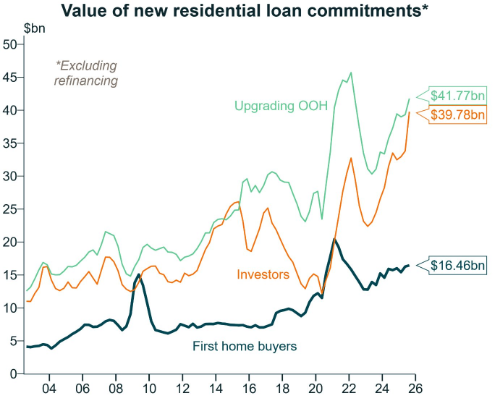
Source: Alex Joiner (IFM Investors)
There were 57,624 new investment loans approved in the September quarter of 2025, a 13.6% (6,906 loans) rise compared to the previous quarter, and growth of 12.3% year over year.
The total value of new investment loans was $39.8 billion in the September quarter, a rise of 17.6% ($6.0 billion). The average investor loan size rose by $11,686 to $685,634 over the quarter.
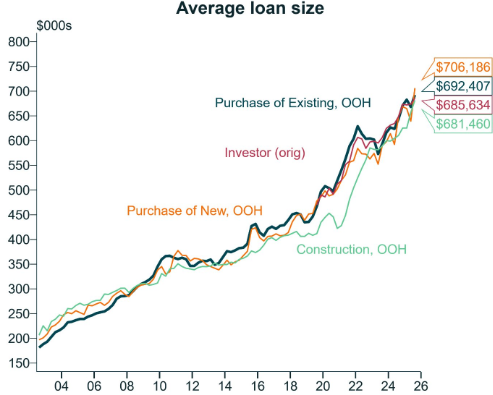
Source: Alex Joiner (IFM Investors)
“Both the number and the value of new investment loans reached record highs in September”, Dr Mish Tan, ABS head of finance statistics said. “The number of investment loans has increased since March 2023, with investment loans reaching around 40% of the total of new loans”.
By comparison, the number of first home buyers mortgages grew by only 667 loans (2.3%) to 29,637 in the September quarter and only by 0.9% year over year. The average loan size for first home buyer owner-occupied loans rose by $5,532 to $560,249.
Obviously, this data predates the introduction of the Albanese government’s 5% deposit scheme for first home buyers, which came into effect on 1 October. This policy should see first home buyer mortgage volumes rise significantly.
First home buyers will need their high loan-to-value ratio (LVR) mortgages to compete in this market, given the explosive growth in investor mortgages, as illustrated below by Tarric Brooker:
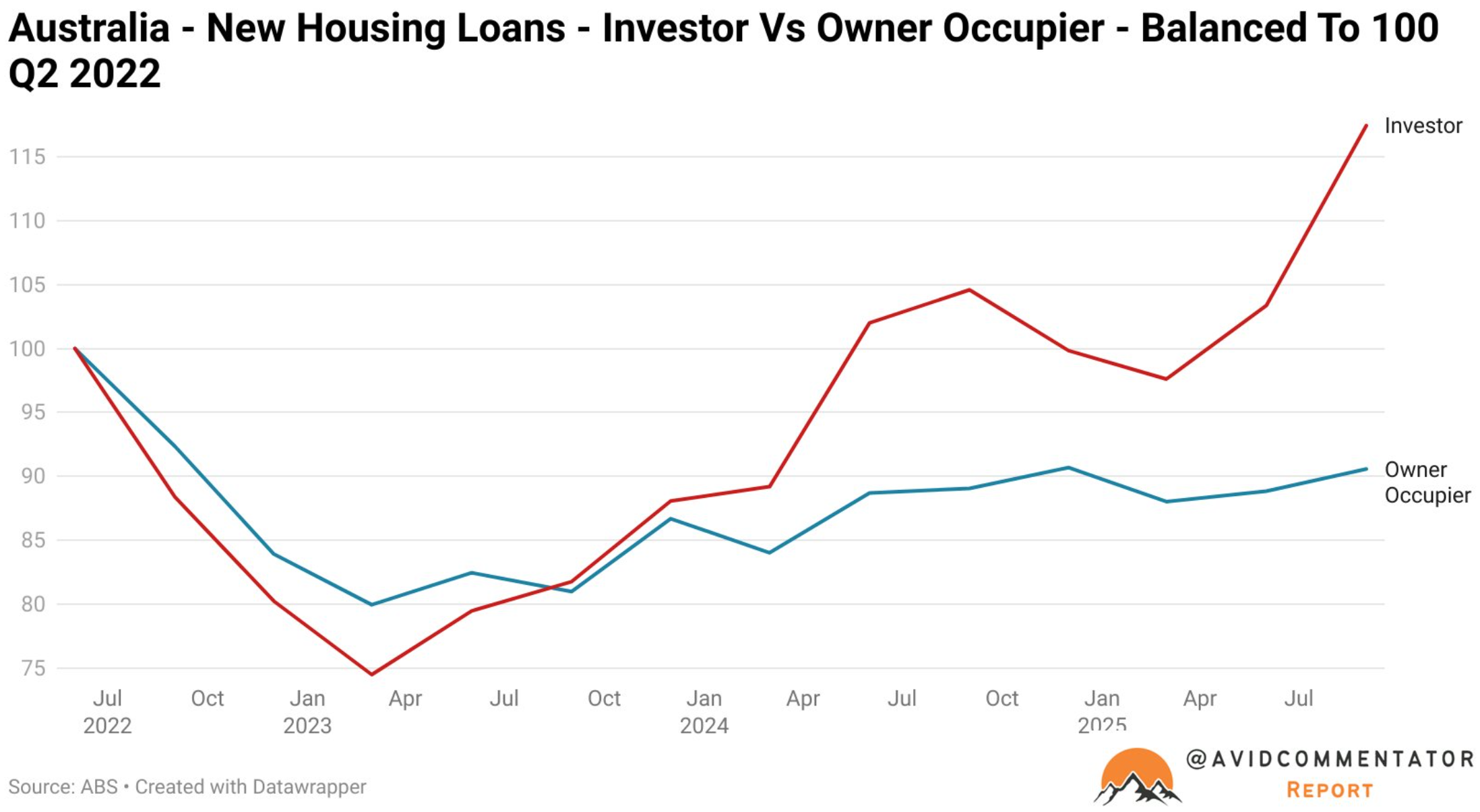
Indeed, Cotality’s house price report for October noted that direct competition between first home buyers and investors was fueling strong price growth across the low-to-middle market.
“Stronger housing demand at the lower price points is likely a culmination of serviceability constraints eroding purchasing power, persistently higher than average levels of investor activity, and what is likely a pickup in first home buyers taking advantage of the expanded deposit guarantee”, Cotality Research Director, Tim Lawless said.
A few weeks back, Justin Fabo from Antipodean Macro posted the following chart showing that Google searches for “investment property” had surged to their highest level in at least two decades:
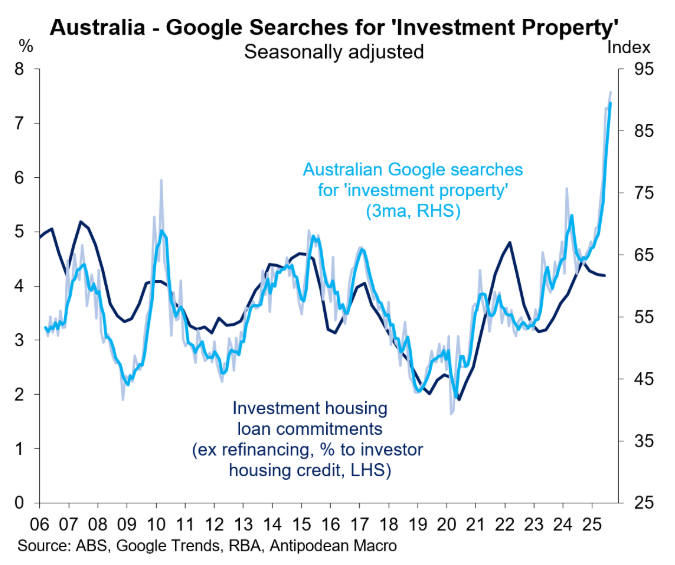
Investors are likely being enticed into the market by the structural shortage of housing, which has seen rental vacancies collapse to record lows, according to Cotality.
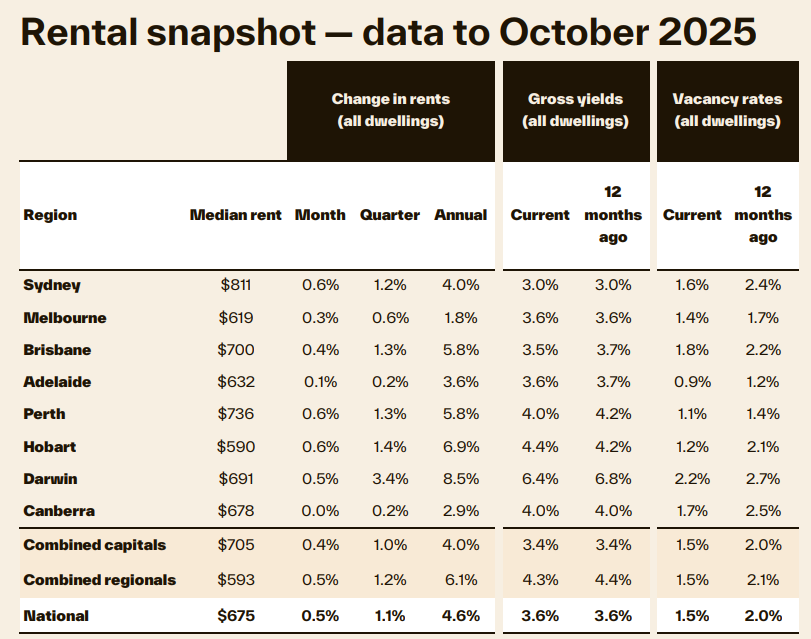
Source: Cotality
Rental listings have also collapsed to a record low following an 18.2% annual decline:
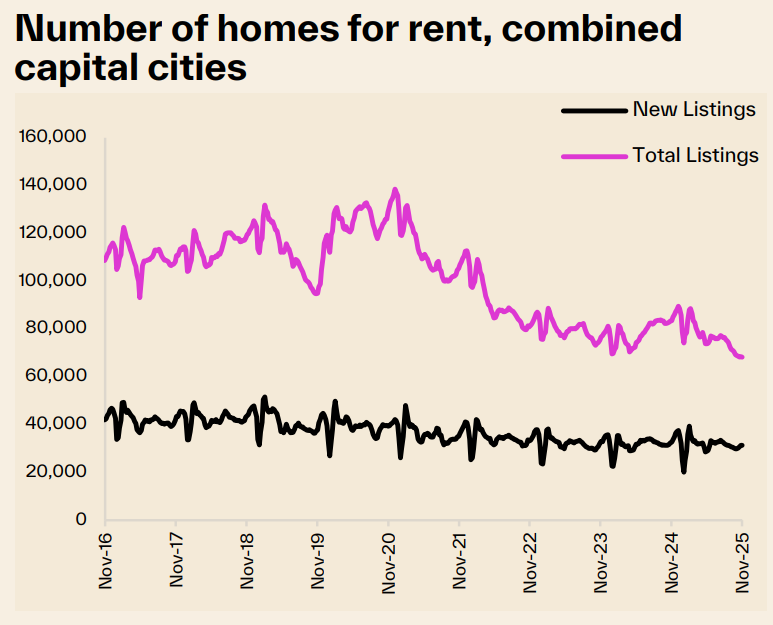
Source: Cotality
As a result, after slowing through 2024, advertised rents are climbing once again.
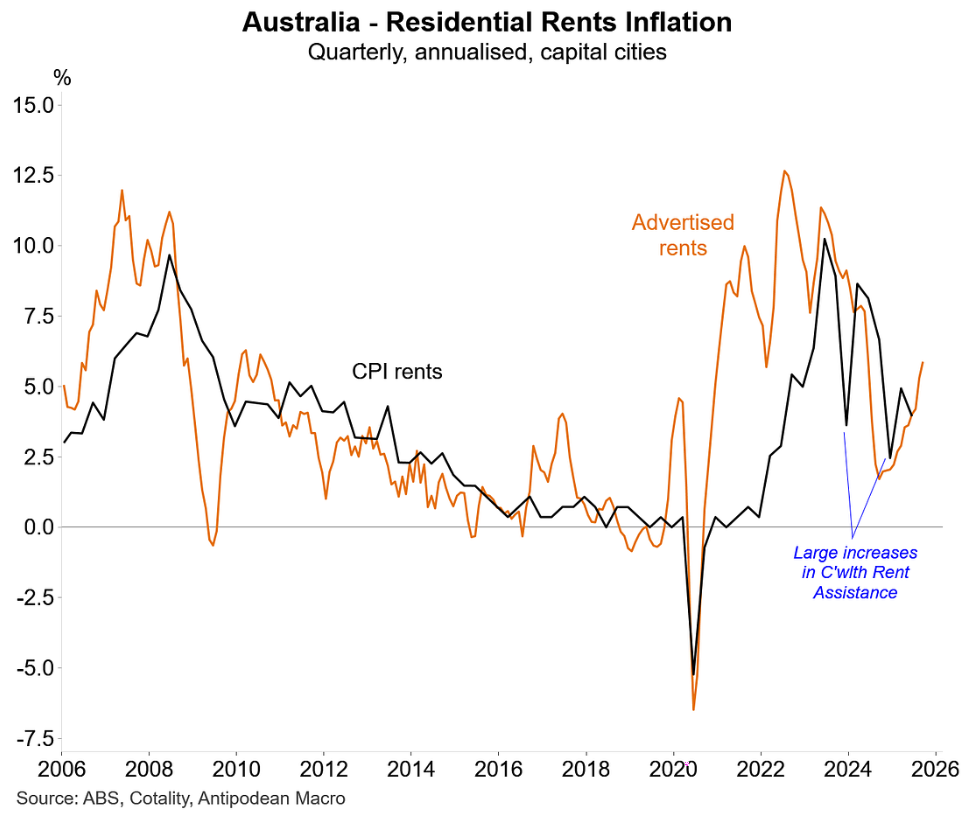
Investors are, therefore, seeking to profit from rising values and rents, increasing competition with first home buyers.
Instead of sucking first home buyers into the market with 5% mortgages, in turn driving home prices and debt higher, the federal government should take heat out of the market by reducing investor tax breaks.
Doing so would actually help first home buyers and improve housing affordability.

